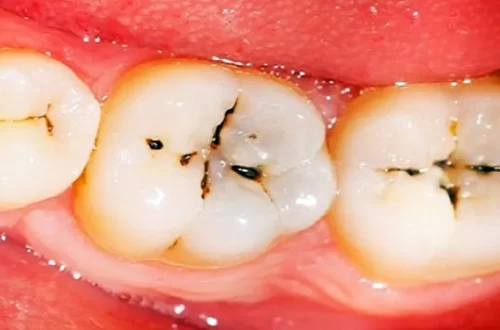
Can a UTI Delay Your Period – Everything You Should Know
Do you have a dreaded UTI and are you wondering where your period went? Even though a period comes with a week of painful cramps and other symptoms, it is still a crucial part of a woman’s monthly cycle, and its absence could mean that something is wrong.
Your menstrual cycle and reproductive systems are unaffected by UTIs. Or, contrary to popular belief, it doesn’t make your periods later.
A late period may occasionally be a sign of additional underlying medical issues. But do infections count as one of them? Let’s find out.
Can Have a UTI Delay Your Period?

Some people may wonder if a UTI is the cause of a late period due to the urinary tract’s close proximity to the vagina and other reproductive organs. However, UTIs only involve the urinary tract and do not directly affect the reproductive organs or the menstrual cycle.
Read More: How to Sleep with a UTI
Can UTI Antibiotics Delay Your Period?
Antibiotics, which are frequently recommended in oral doses, are the only treatment for a UTI. Some of the most common antibiotics used to treat UTIs include:

- Trimethoprim-Sulfamethoxazole
- Cephalexin
- Fosfomycin
- Ceftriaxone
- Nitrofurantoin
While these antibiotics fight the infection by stopping bacteria from multiplying or killing them, they do not affect the hormones responsible for regulating menstruation.
One antibiotic, rifampin, may impact hormone levels and delay your period, though. Though it can be effective against UTIs when combined with trimethoprim, it is not frequently prescribed for this kind of infection.
How Can I Know for Sure It’s Not Pregnancy?
If you engage in sexual activity, a missed or delayed period could indicate pregnancy. Even more perplexing is the fact that some UTI symptoms are also present in the first trimester of pregnancy. Such as:
- Nausea
- Fatigue
- Frequent urination
Additionally, a UTI can occur while pregnant. Calling your doctor is the best way to find out for sure. In order to resume your path to good health, you must take antibiotics or another prescribed form of treatment.
Are Periods and UTIs Connected?
Although there is a link between urinary tract infections and reproductive health, a UTI never actually affects when you get your period.
Common UTI symptoms include the need to urinate frequently, difficulty urinating, or an urge to urinate even when the bladder is empty.
Additionally, some people experience burning in the genital region with urination, have bloody or cloudy urine, or experience lower-abdominal cramps.

Patients may experience chills, fever, nausea, vomiting, and lower back pain when urinating if their UTI has turned into a kidney infection.
There are a few reasons why so much might be happening at once if you have a late period and one or more UTI symptoms.
- Menopause: Women become more prone to irregular periods and UTIs as they age because of the decline in estrogen levels and atrophy of the genital muscles.
- Pregnancy: The signs of an early pregnancy frequently resemble UTI signs. Many pregnant women experience nausea, vomiting, and frequent urination during the first trimester.
- Sexual intercourse and birth control: Because sex can spread bacteria into the urethra, women who engage in sexual activity are more likely to get UTIs. Hormonal birth control can delay a woman’s period, but it does not increase her risk of UTIs.
- Stress: Your immune system and reproductive health are both impacted when you are experiencing emotional stress. Chronic stress can increase your risk of UTI while also impairing your immune system, which can lead to irregular or skipped periods.
Speak with an OB-GYN if you are concerned about UTI symptoms, a missed period, or another aspect of your reproductive or genital health.
When Should I See a Doctor?
In order to cure the infection if you have a UTI, your doctor will need to prescribe antibiotics. Your doctor will write you a prescription for safe-to-take-during-pregnancy antibiotics if you have a UTI and are expecting. They might also suggest drugs that lower your risk of UTIs if you have recurrent UTI infections.
Since UTI put’s you at risk of a kidney infection, it is important to seek immediate medical attention if you experience any of the following symptoms
- Fever
- Chills
- Pain in the back and sides
- Bloody or cloudy urine
- Foul-smelling urine
- Nausea and vomiting
In Summary
Despite being in close proximity to the reproductive organs, a UTI is an infection of the urinary tract and won’t cause your period to be delayed. A delay could occur, though, due to the infection’s stress on the body. There are a few health issues that may be to blame if your period is late.
To find the source of the problem, it is best to talk this over with a doctor. Talk to a doctor if you suspect a UTI so you can get antibiotics and prevent a more serious infection.
FAQs
Can a UTI Cause a Late Period?
Your period won’t necessarily be delayed by an UTI. The menstrual cycle and your reproductive organs shouldn’t be affected by the infection because it is brought on by bacteria in the urinary tract.
What Infections Can Delay Your Period?
Chlamydia can progress to PID if left untreated, which can cause women to occasionally skip periods. The good news is that a quick urine sample can be used to test for chlamydia. An antibiotic treatment plan will cure the infection if it is discovered quickly.
Can Infection Affect My Menstruation?
Menstrual irregularities may result from the infection’s spread to the uterus’ cells. Unusual menstrual cycles, such as late periods, are one of the symptoms of PID, according to the Office on Women’s Health. Along with pain during sex, fever, and pelvic pain, there are other symptoms that are connected to it.





Average Rating